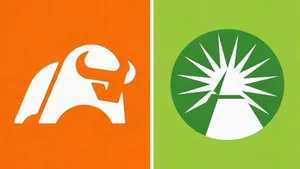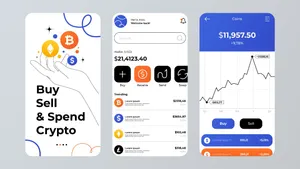If you are a beginner investor, or if you simply don't have thousands of dollars sitting around, fractional shares are the single most important innovation in modern investing.
For decades, if you wanted to buy a stock like Amazon, you had to wait until you had enough money to buy one full share—which could cost $3,000 or more. Fractional shares, also called "Stock Slices" or "Dollar-Based Investing," eliminated that barrier.
What is a Fractional Share? It is owning a small piece of a share. Instead of buying 1 share of Amazon, you can buy $5 worth of Amazon (or any other amount).
This innovation is critical for three reasons:
- Accessibility: You can buy a piece of any high-priced stock, no matter your budget.
- Dollar-Cost Averaging (DCA): It allows you to invest an exact dollar amount from every paycheck (e.g., $100 every Friday) without leaving a few dollars sitting idle.
- Diversification: With a small amount of money, you can spread your cash across 10 different companies instead of being stuck with just one.
The good news is that most major brokerages now offer this. The question is: Which one is truly the best for a beginner who wants to start with $1 or $5?
Here is a look at the top contenders for fractional share investing, based on their minimum requirements and the breadth of their offerings.
🏆 The Winner: Fidelity Investments

Fidelity is the best overall brokerage for beginners who prioritize fractional share investing. It provides the perfect mix of an extremely low barrier to entry, a massive inventory of stocks, and the security of a large, established financial institution.
- Minimum Investment: $1.00
- Eligible Securities: Over 7,000 stocks and ETFs. This is a massive selection that covers virtually every U.S.-listed stock and fund you would ever need.
- Fees: $0.00 commission for fractional trades.
- Why It Wins: Fidelity calls its program "Stocks by the Slice." The $1 minimum is ideal for Dollar-Cost Averaging, and the sheer volume of eligible securities means you won't be limited by their platform. They are a one-stop shop for retirement, taxable, and college savings accounts.
The Runner-Up: Robinhood

Robinhood was one of the pioneers in popularizing fractional shares and remains a top choice for its hyper-simple interface and its history of catering to new, small investors.
- Minimum Investment: $1.00
- Eligible Securities: Thousands of stocks and ETFs, generally any stock priced over $1 with a large market capitalization.
- Fees: $0.00 commission for fractional trades.
- Why It’s a Contender: Robinhood makes the process incredibly simple. You can choose to buy by dollar amount (e.g., "$50 worth") or by share amount (e.g., "0.5 shares"). They also offer Dividend Reinvestment (DRIP) for fractional shares, which is a great compounding feature.
The Best for Power Users: Interactive Brokers (IBKR)

Interactive Brokers has long been known as a platform for professionals, but their fractional share offering is incredibly powerful and low-cost, making it highly attractive to the technically minded beginner.
- Minimum Investment: $1.00
- Eligible Securities: Over 10,500 stocks, ETFs, and ADRs. This is the largest selection available in the market.
- Fees: $0.00 commission for fractional trades.
- Why It’s a Contender: If you are planning to invest in international stocks (ADRs) or niche ETFs, IBKR gives you the broadest access. While the trading platform itself is more complex than Fidelity or Robinhood, the cost structure for basic trades is excellent.
The Best for S&P 500 Focus: Charles Schwab

Schwab is another major name that fully supports fractional share investing, which they call "Stock Slices." Their program is excellent, but it has one key limitation for the beginner.
- Minimum Investment: $5.00
- Eligible Securities: ~500 stocks (Limited to all stocks in the S&P 500 Index).
- Fees: $0.00 commission for fractional trades.
- Why It’s a Contender: If your entire investing strategy is focused on only the largest and best U.S. companies (the S&P 500), Schwab is a perfectly fine choice. However, the higher $5 minimum and the exclusion of smaller stocks and many niche ETFs make it slightly less flexible for the beginner than Fidelity or Robinhood.
Head-to-Head: The Key Numbers
| Brokerage | Minimum Investment | Stocks/ETFs Available | Best For |
| Fidelity | $1.00 | 7,000+ | Overall beginner, low minimum, established name. |
| Robinhood | $1.00 | Thousands | Simplicity, mobile-first experience. |
| Interactive Brokers | $1.00 | 10,500+ | Broadest global/niche selection, advanced users. |
| Charles Schwab | $5.00 | ~500 (S&P 500 only) | If you only ever want to buy S&P 500 stocks. |
Important Limitations of Fractional Shares
While fractional shares are a game-changer for beginners, you need to be aware of three limitations:
- Non-Transferable: Fractional shares cannot be moved from one brokerage to another (via an ACATS transfer). If you switch brokers, you must sell your fractional shares for cash, which can trigger a tax event (capital gains). Always factor this in before you buy.
- No Full Voting Rights: In some cases, because you don't own a full share, you may lose some shareholder rights, such as voting rights. (However, many brokerages like Robinhood and Fidelity pool these fractions and vote on behalf of the users.)
- Order Types: You may be limited to placing market orders for fractional shares (buying at the current, immediate price) and may not be able to use more complex orders like limit orders.
Final Verdict
For the ultimate beginner looking for the lowest minimum and broadest selection in a reliable platform, Fidelity is the clear winner. The $1 minimum and commission-free structure make it the perfect platform for executing a precise Dollar-Cost Averaging strategy across thousands of companies.






